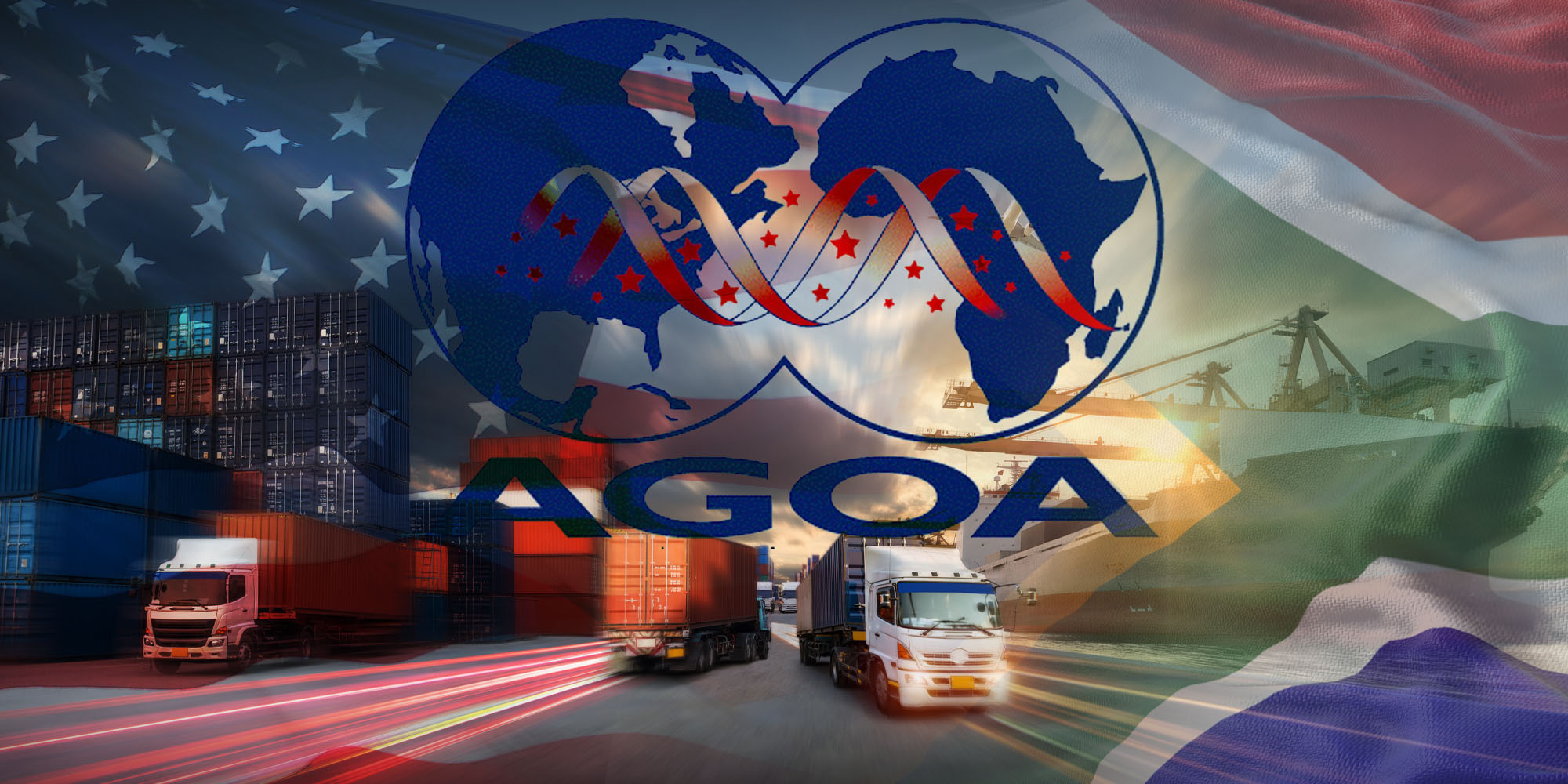One of the most boring discussions I’ve heard around our economy over the past five years has been posed as “will we keep Agoa?”
I hear it everywhere, even now, when US President Donald Trump has made it clear that he wants to tear up the entire trade rule book.
I can understand why we keep hearing about it. There are certain sections of our economy that really benefit from it. Because of Agoa (the African Growth and Opportunity Act), they have been able to grow and employ people.
And some of the arguments they can make about why Agoa matters to us are important.
Free market access to the US is great for the car industry, and for our farmers. It means they are exporting goods produced here, earning dollars in return and basically importing jobs.
People are employed, their kids are kept in good schools. You could argue that the entire community around Daily Maverick journalist Estelle Ellis and the rest of the Baywatch team will be badly hit if it all comes to an end.
And that would be true.
Farmers, too, had a bumper season exporting to the US in the first quarter of the year.
They were able to increase the amount of goods they sent there dramatically in that quarter.
Read more: SA farm exports to US rise 19% in Q1, a green sprout amid frosty diplomacy
When I first heard that, I thought, perhaps, like the Chinese (and I’m sure others), they had been rushing goods into US ports before new tariffs could come into effect.
But that amazing agricultural economics guru Wandile Sihlobo told me on The Money Show on Monday night that this is not the case. It happened because our farmers have created a strong demand for their goods.
And, like our car industry, we are basically importing jobs.
But we should be aware that, despite these very loud and important voices in our national debate, this is not the end of the story.
The Brookings Institute estimated nearly 18 months ago that “In total, a loss of Agoa benefits would lead to a GDP decline of just 0.06%”.
To put that into context, our GDP grew by just 0.1% in the first quarter of this year.
At the same time, the South African Reserve Bank has generally said that load shedding was costing our GDP 2% every year.
So it may matter, but only in the context of our complete inability to take action to grow our own economy.
One of the great risks of this debate around Agoa is that it gives us something else to blame, when we should blame ourselves for our poor economy.
And we must remember that it is not true that there is no cost to us from Agoa.
In fact, a few weeks ago I was almost taken aback when an American investor (one of those wonderful people who travels the world, and is hugely interested and fascinated by it) asked me point-blank: “Why do you all care so much about Agoa?”
He even suggested that actually it went against our interests.
This is because of some of the small print.
If you look at the text of the Act that passed through the US Congress, the conditions of eligibility are designed to literally create African economies in the US mould.
Of course, as we were so often reminded during the Lady R saga, it says that you must “not engage in activities that undermine United States national security or foreign policy interests”.
This is a wonderful stick for the US to beat us with.
If it wants, it could define our opposition to Israel’s genocidal war on the people of Gaza as “undermining” US “foreign policy interests”.
To be clear, there is much in Agoa that is good. It mentions that workers must be protected, that there should be political freedom and things like that.
But it is still a tool of foreign policy. Yes, Agoa is helping African countries to develop. But it is also a useful instrument of control.
Agoa looks finished anyway. In reality, the US system of government appears to be giving Trump whatever he wants. So far, very few Republicans have spoken against his tariff policies.
But the markets are speaking. And the fact that the bond markets have forced Trump to basically chicken out has given us the wonderful phrase Taco (Trump always chickens out).
So, I do think we need to be less afraid of him. He is slowly being revealed as all bark and very little bite.
What we really need to do is to find Americans who lose out if we cannot export to the US.
The US citrus industry, for example, needs our oranges to keep the market interested in oranges during their non-growing season.
And we should not forget those strange people who drive BMW X3s. The models sold in the US are only made here.
And even if they are rubbish cars (who can forget Jeremy Clarkson having to throw the sound guy out of the car to go and push, even now it’s still worth watching), there is still a lobby for them in the US.
I think we need to stop worrying so much about Agoa.
We need to fix our own problems. And perhaps enjoy a taco while we’re doing it. DM
Business Maverick
After the Bell: Who’s afraid of losing Agoa?





